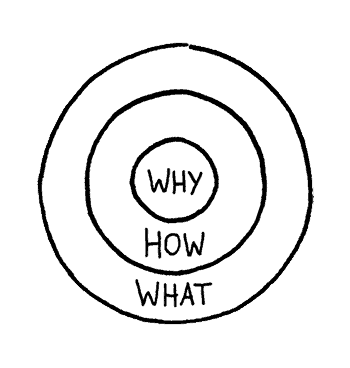How to be a good content writer
✻ By Sharon Lapkin
Content marketing is a marketing approach that focuses on creating high-quality, original content for specific online audiences. A good content writer is essential for this task.
The content is distributed as blogs, podcasts, webinars and videos via social media platforms.
The aim is to build a community of followers who understand you to be an expert in the area you are writing or talking about.
Good content marketing practice includes optimising all content for search engines, such as Google.
The quality and precision of the optimisation is what drives traffic to your website.
The higher you rank in search engine results, the more visitors you get and the more likely they’ll love what they see on your website.
Then, when members of your community are ready to purchase, they come to you because they trust and value your expertise.
Content marketing is not a short-term strategy. It takes time to build a community; time to demonstrate your expertise and time for your potential customers to invest in your offerings.
Blog content is valuable
A blog is the cornerstone of any content marketing strategy.
A whopping 71% of the world’s website traffic comes from an internet search.
More than three quarters of the internet is reading blogs.

Companies with blogs produce an average of 67% more leads monthly than companies that don’t blog.
Around 60% of people seek out a product after reading content about it.
Blog posts with high emotional value have a 1000 times greater chance of being shared.
Do I need keywords?
The days of keyword stuffing are over. We also don’t need short-tail keywords in our toolkit anymore.
A good content writer inserts a single long-tail keyword strategically throughout their content.
The long-tail keyword should be placed (in moderation) in headings, alt text, image titles and captions.
People no longer search the internet by typing single words into Google. They type entire questions into their search engine.
To find your ideal long-tail keyword use a reputable paid keyword finder such as KWFinder, SEMrush or Moz.
In addition, make use of Google’s generosity and read the extra information provided with your search engine results.
Type in the question your reader is likely to ask.
For example, in this blog post, I could have used ‘What is content marketing?’

You need now to look at page one of your search engine results. At the top, you’ll see ‘People also ask’.
This is Google telling you what other types of questions people type in to search for ‘What is content marketing?’
Go to the bottom of page one now, and you’ll find Google again being helpful. ‘Searches related to what is content marketing?’ will provide an array of variants on your keyword search.
From the information you’ve gathered from Google, plus your formal keyword search, you are equipped to create the best long-tail keyword for your blog post.
There’s just one decision left to make.
Do you want your keyword to compete with the thousands of popular long-tail keywords on the web, or do you want to find a less popular keyword that is more likely to deliver unique readers to your website looking for exactly what you offer?
It’s a no-brainer isn’t it?
The latter is the less common keyword, the one that’s out of the square. It is less popular but more powerful.
Also place your long-tail keyword in your alt text, and one or two of the headings and captions.
Know your audience
Create content that matters to your audience. Talk to them and find out what their pain points are.
A good content writer connects emotionally with their readers. Aim for impact, and try to write something that changes their lives.
In order to connect emotionally with your readers, you need to tap into your own authenticity.
Make sure you’ve done your research and have a deep insight into the topic you’re writing about. Also ensure you use credible and reputable sources.
Pitch to your buyer persona
Let’s look at what a buyer persona is and why it is relevant to your content writing.
Buyer personas are fictional representations of your client’s ideal customers.
They’re based on market research and real data, and include demographics, behaviour patterns, similarities and trends.
Buyer personas inform a good content writer about their readers’ needs and helps them deliver personalised content.
A buyer persona is a framework that provides an in-depth understanding of what type of content your readers value.
Hubspot provides a good range of buyer persona templates, along with a guide on how to create a buyer persona.
Don’t underestimate the value of a buyer persona. It’s an integral part of a good content writer’s toolkit.
The buyer's journey
Now that we’ve checked out the buyer persona, let’s move onto the buyer’s journey.
Think of the process you go through when you’re making a decision about purchasing something.
It’s a three-step process – awareness, consideration and decision.
1. Awareness
The first stage of the buyer’s journey is when they realise they have a problem.
2. Consideration
In this second stage, the buyer clarifies and defines the problem and researches ways to resolve it.
3. Decision
In the final stage of the buyer’s journey the buyer selects the solution they want.
Remember the buyers we’re talking about are your readers.
And those readers will be at different stages of the buyer’s journey.
This means that you, as the writer, will need to create content for every stage of the buyer’s journey.
See some suggestions below that will give you an idea of what works.
1. Awareness
The buyer is likely to do a number of generic searches at this stage, so make sure your content promotes brand awareness and has emotional appeal.
2. Consideration
Write content that positions you as an expert in your industry. Use videos, case studies, blogs, guides, infographics and FAQs to build trust.
3. Decision
Provide free trials, consultations, articles that educate about your services, promotions and fast-action bonuses. Also make sure your Testimonials are accessible.
The Golden Circle
A story-writing model that works well for content marketing is Simon Sinek’s Golden Circle model.
Remember that conflict is an essential part of storytelling, so recognise it, work on it and resolve it. Also make sure your story aligns with the reader’s problem.

WHY are you writing this story?
Tap into your emotion and look for the conflict your readers are facing.
HOW will writing this story help your audience resolve this conflict?
WHAT exactly are you offering your audience?
Watch this to learn more about content marketing
Source: Hubspot, 10 October 2021. What everyone must know about content marketing.
Content marketing is always evolving
Content marketing has been around for hundreds of years in the form of storytelling.
Today, however, it’s based on market research and strongly influenced by digital media.
For example – every time Google introduces a new algorithm we analyse it and decide whether we need to change the way we do things.
We can only maintain our currency as good content writers if we stay up-to-date with changes and continually assess the way we work.
I use content marketing to market my own business, Textshop. I believe it’s the most authentic and transparent way to market my services to potential clients.
You might also enjoy reading How to make your writing more powerful.
For editing and proofreading tips read How to copyedit like an expert.
To read more about my content marketing services check this page.
If you’d like to chat to me about content marketing, send me an email via the button below.
Sharon is a content writer and award-winning editor. After acquiring two masters degrees (one in education and one in editing and comms) she worked in the publishing industry for more than 12 years. A number of major publishing accomplishments came her way, including the eighth edition of Cookery the Australian Way (more than a million copies sold across its eight editions), before she moved into corporate publishing.
Sharon worked in senior roles in medical colleges and educational organisations until 2017. Then she left her role as editorial services manager for the corporate arm of a university and founded Textshop Content – a content writing and copyediting agency that provides services to Australia’s leading universities and companies.









